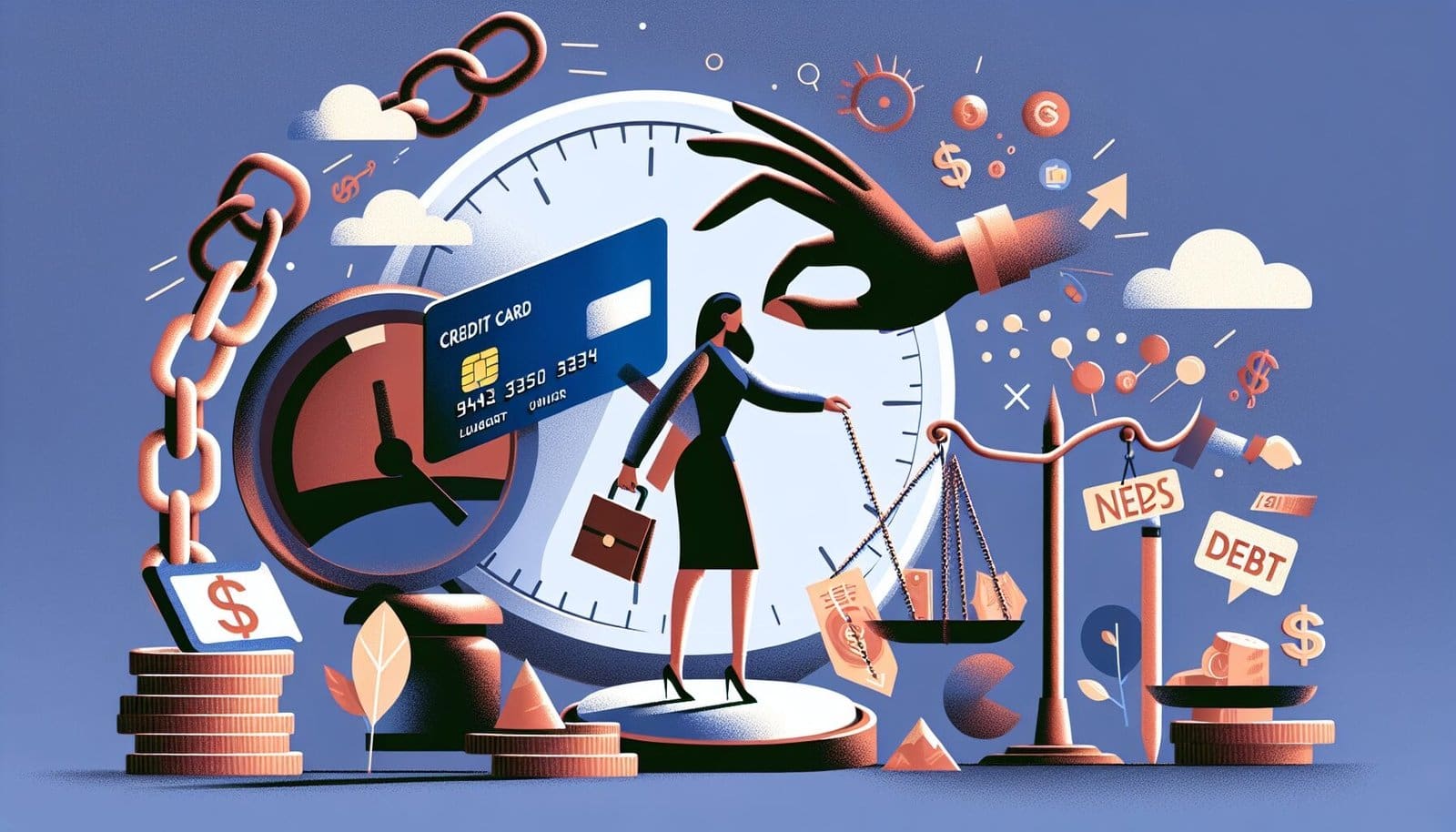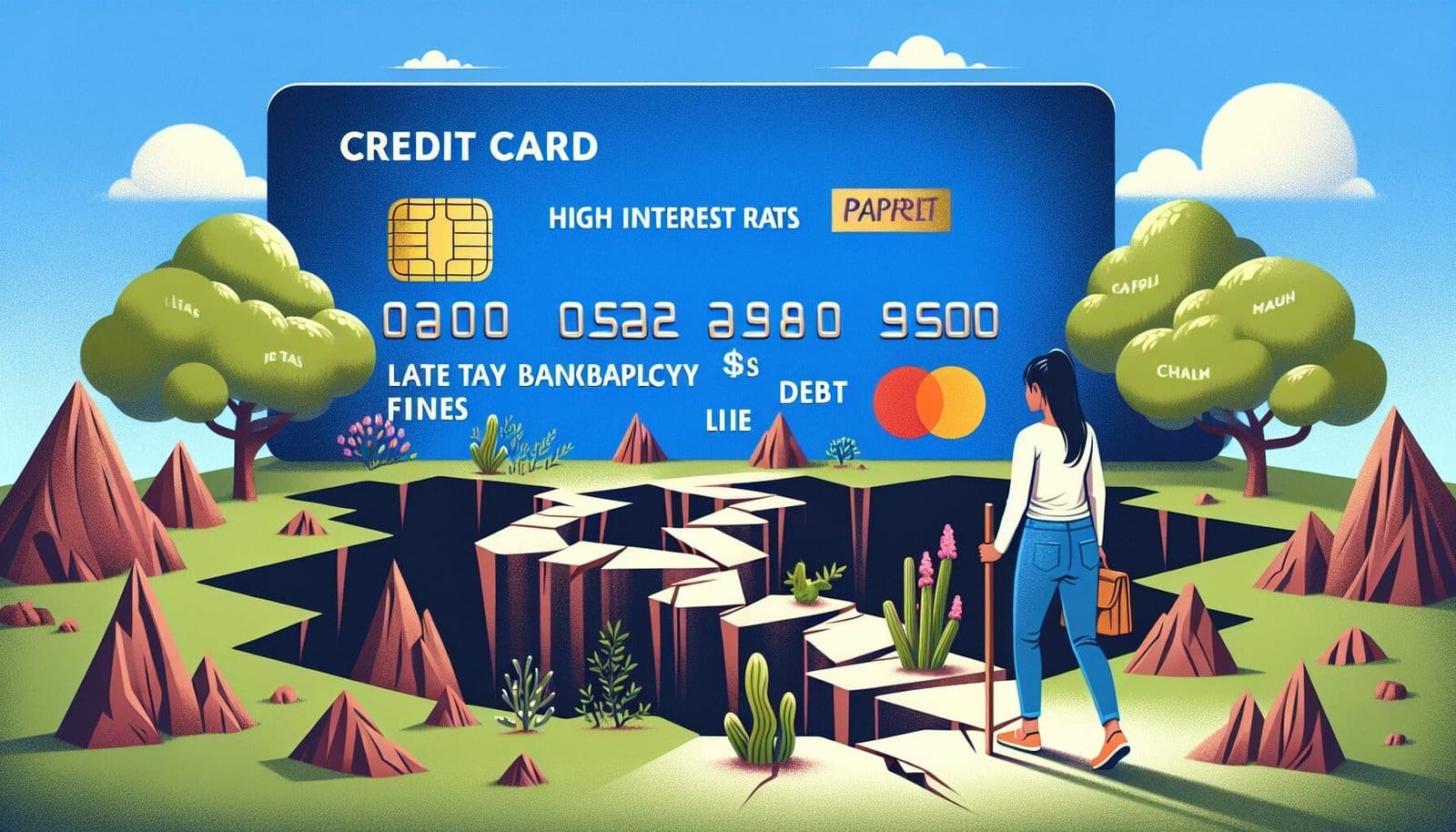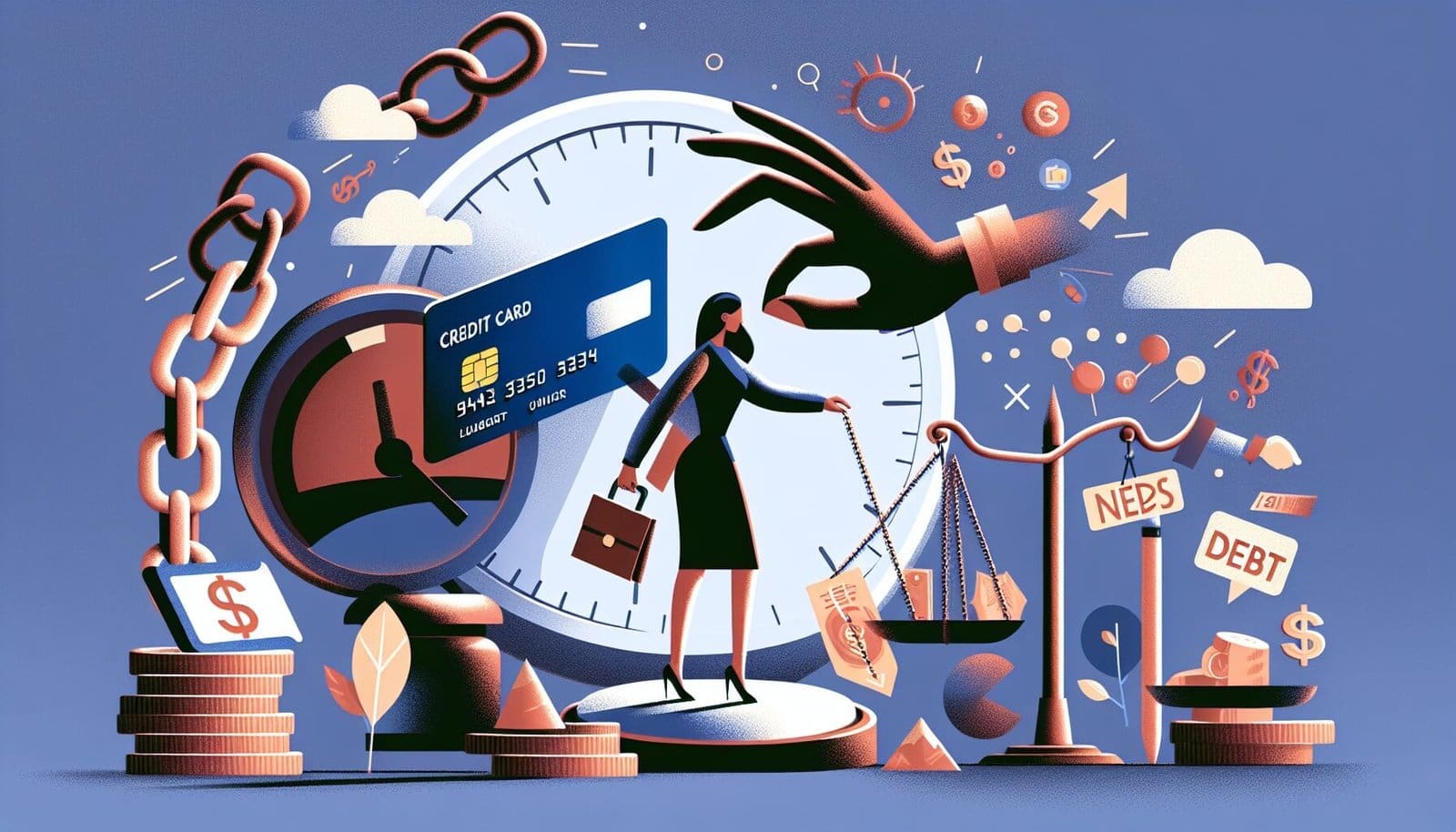Credit cards can be immensely helpful when it comes to managing finances, building credit, and making purchases. However, for first-time credit card users, it's essential to navigate this new financial territory with caution and avoid common pitfalls. In this article, we will explore some of the most prevalent mistakes to steer clear of as a first-time credit card user, ensuring a smooth and successful credit card experience.

Not Understanding Credit Card Terms and Conditions
Failure to Read the Fine Print
One of the biggest mistakes that first-time credit card users make is failing to carefully read the fine print of their credit card terms and conditions. It's easy to get caught up in the excitement of having a credit card and overlook the important details.
The terms and conditions outline important information such as the interest rates, fees, and penalties associated with the card. By not taking the time to thoroughly read and understand these terms, users can easily find themselves in financial trouble.
To avoid this mistake, it's crucial to set aside time to carefully read through the entire credit card agreement. Take note of any fees associated with the card, such as annual fees or late payment fees. Understanding these details will help users make informed decisions and avoid unexpected charges.
Ignoring Introductory Offers and Promotions
Another common mistake is ignoring introductory offers and promotions. Credit card companies often entice new users with attractive promotional offers, such as low or 0% APR for a certain period of time or sign-up bonuses. However, it's important to remember that these offers usually expire after a set period.
By ignoring these offers, users may miss out on the opportunity to save money or earn rewards. It's important to take advantage of these promotions, but also to carefully review the terms and conditions associated with them. Some promotions may require users to spend a certain amount of money to qualify, or may come with additional fees once the promotional period ends.
Not Understanding Interest Rates
One of the most crucial aspects of credit card usage is understanding interest rates. Many first-time users may not fully comprehend how interest works and how it can affect their finances.
Interest is the cost of borrowing money from the credit card issuer. If users carry a balance on their credit card from month to month, they will be charged interest on that balance. It's important to understand the interest rate of the credit card and how it is calculated to avoid accruing unnecessary debt.
Credit cards often have different interest rates for different types of transactions, such as purchases, cash advances, and balance transfers. Users should familiarize themselves with these rates and the implications of carrying a balance on their card.
Overlooking Fees and Penalties
Credit cards often come with various fees and penalties that users must be aware of. Failing to take these charges into account can result in unexpected financial strain.
Some common fees include annual fees, foreign transaction fees, balance transfer fees, and cash advance fees. Additionally, credit card companies may impose penalties for late payments or exceeding the credit limit.
It's important for users to carefully review their credit card terms and conditions to understand the potential fees and penalties. By doing so, they can make more informed decisions and avoid unnecessary charges.
Overspending and Not Tracking Expenses
Exceeding Credit Limit
One of the most common mistakes made by first-time credit card users is exceeding their credit limit. It can be tempting to make purchases without considering the available credit, especially when there are no immediate consequences.
However, exceeding the credit limit can have serious repercussions. Credit card issuers may charge an over-limit fee, increase the interest rate, or even decrease the credit limit. Additionally, it can negatively impact the user's credit score, making it more difficult to secure loans or other forms of credit in the future.
To avoid this mistake, it's important to keep track of the available credit and spend responsibly. Users should also consider setting a personal credit limit lower than the assigned limit to prevent accidental overspending.
Impulse Spending and Lack of Budgeting
Without proper budgeting and self-control, first-time credit card users can easily fall into the trap of impulse spending. The ease and convenience of credit card payments can make it tempting to make unnecessary purchases without considering the long-term financial implications.
To avoid falling into this trap, it's important to establish a budget and track expenses regularly. This will help users prioritize their spending and ensure that they are not making impulsive purchases that they cannot afford.
By creating a budget, users can allocate their finances to necessities and savings, while also allowing for some discretionary spending. This will help prevent overspending and ensure that credit card usage remains within a manageable range.
Failing to Track Credit Card Expenses
Another mistake that first-time credit card users often make is failing to track their credit card expenses. Without keeping a close eye on their spending, users may find themselves facing larger credit card bills than expected, or even struggling to keep up with repayments.
To avoid this mistake, it's essential to monitor credit card expenses regularly. This can be done by reviewing monthly credit card statements or by using budgeting and financial tracking tools available online or through mobile applications.
Tracking credit card expenses not only helps users stay on top of their spending but also allows them to identify any fraudulent or unauthorized transactions early on. This enables them to take necessary actions to protect their finances and resolve any issues promptly.
Carrying a Balance and Accumulating Debt
Paying Only the Minimum Amount Due
A common mistake among first-time credit card users is paying only the minimum amount due on their credit card bill. While this may seem like a convenient option in the short term, it can lead to significant financial problems in the long run.
By paying only the minimum amount, users allow the remaining balance to accrue interest, potentially resulting in a cycle of debt. The interest charges can quickly add up, making it difficult to pay off the balance in full. Additionally, this can negatively impact the user's credit score.
To avoid this mistake, it's crucial to pay off the credit card balance in full each billing cycle whenever possible. By doing so, users can avoid excessive interest charges and keep their credit card usage under control.
Maxing Out Credit Card
Maxing out a credit card is a mistake that many first-time users make without fully understanding the consequences. Maxing out a credit card means reaching the credit limit and using up all available credit.
This can have several negative effects. Firstly, it can increase the credit utilization ratio, which is the percentage of available credit that is being used. A high credit utilization ratio can negatively impact the user's credit score.
Furthermore, maxing out a credit card leaves no room for emergencies or unexpected expenses. If users have no available credit, they may be forced to turn to other, potentially more expensive forms of borrowing.
To avoid this mistake, it's important to keep credit card usage well below the assigned credit limit. Users should aim to use no more than 30% of their available credit to maintain a healthy credit utilization ratio.
Neglecting to Pay Credit Card Bills on Time
First-time credit card users may underestimate the importance of paying credit card bills on time. However, late payments can have severe consequences for both finances and credit scores.
Late payments can result in late payment fees, increased interest rates, and even damage to the credit score. The payment history is a significant factor in calculating credit scores, and any missed or late payments can have a lasting impact.
To avoid this mistake, it's crucial to prioritize credit card bill payments and ensure they are made on time each month. Setting up automatic bill payments or creating reminders can help users stay on track and avoid unnecessary fees and penalties.
Relying on Credit Card for Emergency Funds
First-time credit card users may view their credit card as a source of emergency funds. While having a credit card for emergencies is a wise move, relying solely on it can lead to financial instability.
Credit cards come with interest rates and potential fees, which can make emergency expenses even more costly. Relying solely on a credit card for emergencies can also lead to larger credit card balances and difficulty in repayment.
To avoid this mistake, it's important to build an emergency fund separate from the credit card. This can be done by setting aside a portion of income each month into a savings account. Having an emergency fund provides financial security and reduces reliance on credit cards for unexpected expenses.
Using Credit Card for Cash Advances
High Cash Advance Fees and Interest Rates
Credit cards offer cash advance options that allow users to withdraw cash from ATMs or receive cash equivalent transfers. However, using credit cards for cash advances can come with high fees and interest rates.
Cash advance fees are typically a percentage of the total amount withdrawn, often with a minimum fee. These fees can quickly add up, making cash advances an expensive option.
In addition to fees, cash advances also incur interest charges from the day of the transaction, usually at a higher interest rate than regular purchases. This means that interest will be charged immediately, without the typical grace period afforded to credit card purchases.
Lack of Knowledge on Cash Advance Terms
First-time credit card users may not be aware of the specific terms and conditions associated with cash advances. They may not fully understand the fees, interest rates, or repayment terms.
To avoid this mistake, it's crucial to familiarize oneself with the specific terms and conditions related to cash advances. Users should understand the fees involved, as well as how interest is calculated and when repayments are due.
If cash advances are not strictly necessary, it is generally recommended to avoid them due to the high costs. Exploring alternative methods of obtaining funds, such as personal loans or lines of credit, may be more financially advantageous.
Taking Cash Advances as Regular Income Source
Some first-time credit card users may mistakenly view cash advances as a regular income source. They may rely on cash advances to cover everyday expenses, leading to a cycle of borrowing and debt.
Treating cash advances as regular income is a dangerous habit that can quickly spiral out of control. Users may find themselves dependent on the cash advances, with their credit card balance continuously increasing.
To avoid falling into this trap, it's crucial to budget effectively and find alternative sources of income to cover regular expenses. By prioritizing financial stability and relying on sustainable income streams, users can avoid the pitfalls of relying on cash advances as a regular income source.

Sharing Credit Card Information
Sharing Credit Card with Others
First-time credit card users may be tempted to share their credit card information with friends, family members, or even acquaintances. This can be a grave mistake that can lead to financial loss and potential fraud.
Sharing credit card information means that others have access to the credit card number, expiration date, and security code. This information can be used to make unauthorized purchases, leaving the cardholder responsible for the charges.
To avoid this mistake, it's vital to keep credit card information confidential and not share it with anyone. If a shared credit card is needed, it is recommended to explore authorized user options provided by credit card issuers, which allow controlled access to the credit card account.
Not Safeguarding Personal Information
In addition to sharing credit card information, first-time users may neglect to safeguard their personal information. This can include passwords, PIN numbers, and other sensitive data associated with their credit card account.
Not safeguarding personal information can make users vulnerable to identity theft and fraud. Criminals can use stolen information to make unauthorized charges or gain access to other personal accounts.
To avoid this mistake, it's important to use strong and unique passwords for credit card accounts and never share them with anyone. It's also advisable to be cautious when providing personal information online and to ensure that online transactions are made on secure and trusted websites.
Using Public Wi-Fi for Online Transactions
First-time credit card users may not realize the risks associated with using public Wi-Fi networks for online credit card transactions. Public Wi-Fi networks are often unsecured and can be easily accessed by hackers.
Using public Wi-Fi for online transactions can expose personal and financial information to potential interception. Hackers can easily capture sensitive data during the transaction process, resulting in unauthorized access to credit card accounts.
To avoid this mistake, it's essential to avoid making credit card transactions on public Wi-Fi networks. Instead, it's advisable to use secure and trusted networks, such as personal Wi-Fi or cellular data, to ensure the privacy and security of the transaction.
Not Monitoring Credit Card Statements
Neglecting to Review Monthly Statements
One of the most common mistakes that first-time credit card users make is neglecting to review their monthly credit card statements. Users may assume that the charges are accurate without taking the time to carefully review each transaction.
However, neglecting to review statements can lead to overlooking unauthorized charges, mistakes, or discrepancies. It's important to thoroughly review each statement to ensure that all transactions are accurate and authorized.
By reviewing statements regularly, users can identify any potential issues early on and take immediate action to address them. This includes reporting fraudulent charges, disputing errors, or resolving any other concerns with the credit card issuer.
Failing to Detect Unauthorized Transactions
Failing to detect unauthorized transactions is another mistake that first-time credit card users may make. Without reviewing statements diligently, users may miss fraudulent charges made by others using their credit card information.
Unauthorized transactions can occur due to credit card theft, data breaches, or other fraudulent activities. If left undetected, these charges can significantly impact the user's finances and credit score.
To avoid this mistake, it's crucial to review credit card statements regularly and carefully. Any suspicious or unauthorized charges should be reported to the credit card issuer immediately, who can then investigate and take appropriate action.
Ignoring Discrepancies or Errors
Ignoring discrepancies or errors on credit card statements is a mistake that can have long-term consequences. Users may assume that small discrepancies or billing errors are not significant, leading them to disregard them.
However, even minor errors should not be ignored. They may indicate a larger issue, such as identity theft or a mistake by the credit card issuer. It's important to address any discrepancies or errors promptly to protect personal finances and credit standing.
To avoid this mistake, it's crucial to carefully review credit card statements and address any concerns or questions with the credit card issuer. This proactive approach ensures that all transactions are accurate and that any issues are resolved promptly.
Common Mistakes to Avoid as a First-Time Credit Card User
Closing Credit Card Accounts Impulsively
Closing Oldest Credit Card Account
First-time credit card users may be tempted to close their oldest credit card account without considering the potential consequences. The oldest credit card account is often the one with the longest credit history, and closing it can impact the user's credit score.
Credit history plays a significant role in determining creditworthiness, and closing the oldest credit card account can shorten the overall credit history. This may have a negative impact on the user's credit score and make it more challenging to secure loans or favorable interest rates in the future.
Before closing any credit card account, it's important to carefully consider the implications and weigh the potential benefits. In some cases, keeping the account open and using it responsibly can actually help improve the credit score over time.
Impact on Credit Utilization Ratio
Closing credit card accounts impulsively can also impact the credit utilization ratio, which is the percentage of available credit that is being used. The credit utilization ratio is an essential factor in determining credit scores.
When a credit card account is closed, the available credit is reduced, which can increase the overall credit utilization ratio. This can negatively impact the credit score, as lenders often prefer to see a lower utilization ratio.
Before closing any credit card account, it's important to analyze the impact on the credit utilization ratio and ensure that it remains within a healthy range. Keeping credit card accounts open, even with low balances, can help maintain a favorable credit utilization ratio.
Potential Negative Effects on Credit Score
Closing credit card accounts can potentially result in negative effects on the user's credit score. Credit scores are calculated based on various factors, including the length of credit history, credit utilization ratio, and payment history.
Closing credit card accounts can impact all three of these factors. It can shorten the overall length of credit history, increase the credit utilization ratio, and potentially disrupt the positive payment history associated with the account.
To avoid negatively affecting the credit score, it's crucial to carefully assess the impact of closing a credit card account and consider alternative strategies to manage credit card usage effectively.
Considering Canceling Cards for Temporary Benefits
First-time credit card users may be tempted to cancel credit cards solely for temporary benefits, such as sign-up bonuses or promotional offers. While these benefits can be attractive, canceling credit cards impulsively can have long-term consequences.
Before canceling any credit card, it's important to carefully assess the overall value of the card and its benefits. Users should consider the potential impact on credit scores, ongoing rewards programs, credit utilization ratio, and overall credit history.
In some cases, it may be more beneficial to keep the credit card open, even if the temporary benefits have expired. The ongoing rewards, credit history, and overall credit utilization ratio should be prioritized when making decisions regarding canceling credit cards.
Applying for Multiple Credit Cards at Once
Impact on Credit Score
One mistake that first-time credit card users often make is applying for multiple credit cards at the same time. This can lead to multiple hard inquiries on the credit report, which can negatively impact the credit score.
Hard inquiries are recorded on the credit report when lenders and credit card issuers check the credit history and creditworthiness of an individual. Multiple hard inquiries within a short period can imply a higher level of risk to potential lenders.
To avoid this mistake, it's important to research and select credit cards strategically. It's advisable to apply for credit cards selectively and consider the potential impact on the credit score before submitting multiple applications.
Increased Risk of Overspending
Applying for multiple credit cards simultaneously can increase the risk of overspending for first-time users. Having access to multiple lines of credit can be tempting and may lead to excessive spending without considering the consequences.
To avoid this mistake, it's crucial to use credit cards responsibly and only spend what can be comfortably repaid. Users should also consider their budget and financial goals before applying for new credit cards to prevent the accumulation of unnecessary debt.
Challenges in Managing Multiple Accounts
First-time credit card users may underestimate the challenges involved in managing multiple credit card accounts. Each credit card comes with its payment due dates, credit limits, and terms and conditions, which can be difficult to keep track of.
Managing multiple accounts can be overwhelming and may result in missed payments or confusion regarding credit card balances. These mistakes can have a negative impact on the credit score and overall financial well-being.
Before applying for multiple credit cards, it's important to assess the ability to manage and keep track of each account effectively. Users should consider their organizational skills and financial capacity to handle multiple accounts responsibly.
Higher Probability of Identity Theft
Applying for multiple credit cards increases the exposure of personal and financial information, which can make individuals more susceptible to identity theft. Each credit card application requires sensitive personal data, which can potentially be misused if not handled securely.
To mitigate the risk of identity theft, it's important to apply for credit cards only with reputable and trusted financial institutions. Users should also ensure that their personal and financial information is protected and not shared with unauthorized individuals or organizations.
Neglecting to Check Credit Reports Regularly
Failure to Monitor Credit Activity
First-time credit card users may neglect to monitor their credit activity regularly. However, closely monitoring credit reports is crucial for identifying any suspicious or unauthorized activities that may indicate potential fraud or identity theft.
Credit reports provide detailed information on credit accounts, payment history, and inquiries. Regularly monitoring credit reports allows users to spot any discrepancies, errors, or signs of fraudulent activity promptly.
To avoid this mistake, it's important to review credit reports from all three major credit reporting bureaus (Experian, TransUnion, and Equifax) regularly. This can be done by requesting a free copy of the credit report annually or using credit monitoring services that provide regular updates and alerts.
Difficulty Identifying and Reporting Errors
Neglecting to check credit reports regularly can make it difficult to identify and report errors. Mistakes in credit reports can lead to incorrect credit scores, which can negatively impact the ability to secure loans or favorable interest rates.
By regularly monitoring credit reports, users can identify any errors or inaccuracies and take appropriate steps to correct them. This may involve contacting the credit reporting bureaus and providing supporting documentation to rectify the errors.
Regularly checking credit reports also allows users to ensure that all reported information is accurate and up to date. This includes verifying the inclusion of all credit accounts, payment history, and personal information.
Not Addressing Fraudulent Activity Proactively
First-time credit card users may not realize the importance of proactively addressing fraudulent activity on their credit reports. Failure to take immediate action in response to fraudulent activity can result in financial loss and damage to credit standing.
If any signs of fraudulent activity are detected, such as unauthorized accounts or suspicious inquiries, it's crucial to report them to the credit reporting bureaus and the credit card issuer. This will initiate an investigation and help prevent further damage.
Taking prompt action to address fraudulent activity is essential for protecting personal finances and credit standing. It can help mitigate financial loss, prevent credit score damage, and improve the chances of a successful resolution.
Not Seeking Help or Information
Avoiding Credit Counseling Services
First-time credit card users may avoid seeking help or guidance from credit counseling services. Credit counseling services provide valuable resources and expertise in managing credit card debt, budgeting, and improving financial literacy.
By avoiding credit counseling services, users may miss out on valuable advice and strategies to effectively manage credit cards and avoid unnecessary debt. Credit counselors can provide personalized guidance based on individual financial situations and goals.
To avoid this mistake, it's important to consider utilizing credit counseling services as a valuable resource. These services can provide expert advice on managing credit card debt, creating effective budgets, and making informed financial decisions.
Lack of Knowledge about Credit Card Benefits
First-time credit card users may not fully understand the benefits and perks associated with their credit cards. Credit cards often come with various reward programs, travel benefits, or purchase protection features that users may be unaware of.
By neglecting to explore and understand these benefits, users may miss out on valuable opportunities to save money or enhance their overall credit card experience. These benefits can include cashback rewards, airline miles, or extended warranty protection.
To avoid this mistake, it's important to review the specific benefits and perks associated with each credit card. Understanding the terms and conditions of these benefits can help users maximize their credit card usage and take advantage of available rewards programs.
Failure to Take Advantage of Rewards Programs
First-time credit card users may fail to take advantage of rewards programs associated with their credit cards. Rewards programs offer various incentives for credit card usage, such as cashback, airline miles, or points that can be redeemed for merchandise or travel.
By not actively participating in rewards programs, users miss out on the opportunity to earn valuable rewards for everyday purchases. These rewards can provide significant savings or travel benefits, enhancing the overall credit card experience.
To avoid missing out on rewards programs, it's important to familiarize oneself with the terms and conditions and actively participate in earning and redeeming rewards. This may involve strategic spending, using credit cards for everyday purchases, or exploring ways to maximize rewards accumulation.
In conclusion, first-time credit card users can make a variety of mistakes that can have long-lasting consequences on their finances and credit scores. It's crucial to take the time to understand credit card terms and conditions, track expenses diligently, and avoid overspending and accumulating excessive debt. By being proactive in monitoring credit card statements, protecting personal information, and seeking help or information when needed, first-time users can navigate the world of credit cards more effectively and avoid common pitfalls.





